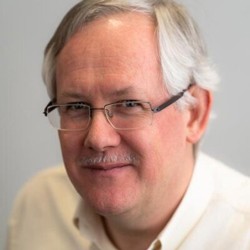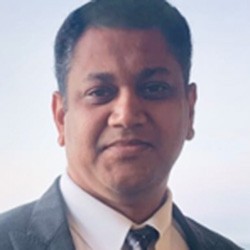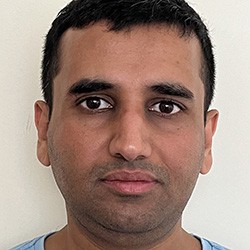3rd International Workshop on Digital Twin Architecture (TwinArch) and Digital Twin Engineering (DTE)
The TwinArch and DTE Workshop is co-located with the 21st IEEE International Conference on Software Architecture (ICSA) in Hyderabad, India, and will take place on June 5, 2024.
This 3rd Joint International Workshop on TwinArch and DTE will provide researchers and practitioners with a unique forum to exchange ideas and experiences, analyze research and development issues, discuss promising solutions, and propose inspiring visions for the future in the field of digital twins and their applications in various fields, from manufacturing to socio-economic systems, from the combined perspective of software architecture and systems and software modeling. It aims to increase the awareness of the role of digital twins in software architecture and systems engineering and to address the importance of the modeling and architecture of digital twins and of complex systems with digital twins.
The TwinArch and DTE Workshop is co-located with the 21st IEEE International Conference on Software Architecture (ICSA) in Hyderabad, India, and will take place on June 05, 2024.
Scope
Generally speaking, a digital twin is a virtual representation that serves as the virtual counterpart of a physical entity with real-time synchronization between the physical and the virtual parts. In particular, digital twins aggregate data generated in the physical world, enable experimenting with this data in the simulations of assets, and provide insights that may be deployed back to the physical world.
Digital twins are increasingly being developed in multiple domains and have the potential to impact industry and society in different ways. They are considered to be the core of the Industrial Internet of Things as well as the next generation of cyber-physical systems. In particular, they have been identified as the top priority emerging technology by the IEC and the ISO Joint Technical Committee and as the top trend for driving digital innovation by Gartner.
However, the application of digital twins is not limited to industrial domains; they are also capable of exploring and defining the most effective interventions for large businesses and societal systems to achieve their operational, economic, and sustainability-related objectives (e.g., Gemini principles).
Despite this potential, fundamental methodological and technical challenges remain, motivating academic research and collaboration between industry and academia.
The 3rd International Workshop on Digital Twin Architecture (TwinArch) and Digital Twin Engineering (DTE) will provide researchers and practitioners with a unique forum to exchange ideas and experiences in the field of digital twins from the perspective of software architecture and systems and software modeling.
Topics
Topics of interest include, but are not limited to:
Software Architecture Description for and with Digital Twins:
- Architectures of digital twins, including digital threads and digital shadows
- Architectures for cyber-physical systems with digital twins
- Integration of multiple stakeholder's concerns into the software architecting process of digital twins
- AI in the architecture of digital twins, e.g., AI for generating simulation models for digital twins
- Case studies involving simulations to guide the development of system architecture
From Software Architecture Models to Executable Simulation Models:
- (Semi-)formal approaches supporting architecture models with digital twins at design time / run time
- Approaches for (semi-)automatically creating simulation models from architecture
- Architecture frameworks for the development of digital twin architectures from multiple viewpoints
- Case studies involving simulations to guide systems architecture development.
Digital Twins for Adaptive Systems / Software Architectures:
- Software architecture practices to support adaptations
- AI technologies for adaptation (e.g., case-based-reasoning, reinforcement learning)
- Cognitive digital twins
- Case studies of adaptive architectures
Digital Twins and Continuous Engineering Practices:
- Runtime verification of systems with digital twins
- Monitoring the quality of systems using digital twins
- Self-validation of digital twins
- Case studies of continuous engineering using digital twins
Models, Methods, and Techniques for Developing Digital Twins:
- Requirements engineering for digital twins
- Conceptual modelling for socio-techno-economical systems
- Knowledge management for capturing domain knowledge
- Methods and models for capturing the inherent uncertainty of business and societal systems
- Simulation of business and social systems
- Multi-paradigm modelling and co-simulation techniques
- Validation and verification of digital twins
Technology and its Applications
- Application of enterprise modelling techniques for digital twin initiatives from different domains
- Relevance of AI and optimization techniques
Aspects and Domains of Interest
- Industry 4.0
- Supply chain management
- Social systems for policy making, urban planning, and healthcare
- Sustainability
- Smart cities
Submission
Author's Schedule / Important dates
- Paper submission: February 25, 2024
- Author notification: March 17, 2024
- Camera-ready version: April 07, 2024
All submissions will be peer-reviewed by at least three members of the program committee.
They will be evaluated based on originality, contribution to the field, technical and presentation quality, and relevance to the workshop.
Please consider the following page limits:
- 8 pages for short research papers in IEEE format + 2 extra pages for references
- 8 pages for industry papers as case studies + 2 extra pages for references
Papers are to be submitted using Easychair.
ICSA 2024 will use a two-step process for workshop proceedings. Online proceedings (available before the start of the conference) will include all papers accepted to the workshops and will be published online on the ICSA 2024 website (no proceedings). Accepted papers will be accessible only by the ICSA 2024 workshop participants and the format should conform to IEEE.
Selected and extended papers of the workshops will be published in a Springer IEEE volume (up to 8 pages).
Keynote Speaker

Prof. Dr. Hans Vangheluwe
Professor in the Computer Science department at the University of Antwerp in Belgium. He leads the Modelling, Simulation and Design Lab (MSDL), which is also a core research lab of the Flemish Strategic Research Centre Flanders Make. Earlier, he was with the School of Computer Science of McGill University in Canada.
Some of his contributions, both in software engineering and in modelling and simulation are (1) domain-specific visual modelling, simulation and optimization of bio-activated sludge waste-water treatment plants (WWTPs), which has lead to the commercial tool WEST (now part of DHI’s MIKE), (2) work as a founding member of the design team of the language Modelica for the computationally a-causal modelling of physical systems, (3) the development of meta-modelling and model transformation foundations prototyped in the transformation kernel library T-Core (with Eugene Syriani) and the visual modelling tool AToM3 (with Juan de Lara), later followed by AToMPM and the Modelverse, (4) the specification of contracts for and the symbolic analysis of model transformations using SyVOLT, and (5) the development of efficient real-time and distributed simulators such as PythonPDEVS.
He recently chaired the European COST Action 1404 on Multi-Paradigm Modelling for Cyber-Physical Systems (MPM4CPS).
Invited Speaker

Dr. Saurabh Mittal
Dr. Saurabh Mittal is currently a Principal Scientist and a Project Leader at The MITRE Corporation. Previously at MITRE, he has held roles of Chief Scientist for the Simulation, Experimentation and Gaming Department, Tech. Advisor and Modeling & Simulation (M&S) Subject Matter Expert to various gov. sponsors and Principal Investigator for multiple internal research efforts involving cyber-physical systems, digital twins, Internet of Things and virtual cloud-based simulation system of systems.
He received PhD (2007) in Electrical and Computer Engineering with dual minors in Systems and Industrial Engineering, and Management and Information Systems from the University of Arizona, Tucson. He has co-authored over 100 publications as book chapters, journal articles and conference proceedings including 5 books, covering topics in the areas of complex systems, system of systems, complex adaptive systems, and M&S-based complex systems engineering.
He served as the President for the Society for Modeling and Simulation International (SCS) for FY21 and a member of the Board of Directors (FY18-20). He has also served as General Chair, Vice-General Chair, Program Chair and Track Chair during the 2013-2023 period in Spring, Summer and Winter Simulation Conferences. He is a recipient of the US DoD's highest civilian contractor recognition: Golden Eagle award, and Outstanding Service and Professional Contribution awards by SCS.
Digital Twins Industrial Tooling Part 2:
Towards Control-Oriented Digital Twins of Complex Systems

Aditya A. Paranjape
Aditya A. Paranjape received B.Tech and M.Tech in Aerospace Engineering from the Indian Institute of Technology (IIT) Bombay in 2007, and PhD in Aerospace Engineering from the University of Illinois at Urbana-Champaign in 2011. He is an Associate Professor of Mechanical and Aerospace Engineering at Monash University. He is also Honorary Lecturer at Imperial College London and Visiting Associate Professor at IIT Bombay. His research interests are centred around flight physics, control systems, robotics, and multi-agent systems.
Schedule
| Time | Activity |
|---|---|
| 09:30 09:45 | Welcome |
| 09:45 11:00 | Keynote: Prof. Dr. Hans Vangheluwe |
| 11:00 11:30 |
by William Appleton Coolidge, Sune Lundø Sørensen and Mikkel Baun Kjærgaard by Likhith Kanigolla, Gaurav Pal, Karthik Vaidhyanathan, Deepak Gangadharan and Anuradha Vattem. by Sanket Mishra and Jayendran Venkateswaran. |
| 13:00 14:00 | Lunch break |
| 14:00 15:00 | Invited Talk by Dr. Saurabh Mittal |
| 15:00 15:30 | Towards Interoperable Digital Twins: Integrating SysML into AAS with Higher Order by Enxhi Ferko, Luca Berardinelli, Alessio Bucaioni, Moris Behnam and Manuel Wimmer. |
| 15:30 16:00 | Coffee Break |
| 16:00 16:30 | Digital Twins Industrial Tooling Part 1: Eclipse BaSyx & Fraunhofer FERAL |
| 16:30 17:00 | Digital Twins Industrial Tooling Part 2 by Aditya A. Paranjape: Towards Control-Oriented Digital Twins of Complex Systems. |
| 17:00 17:30 | Open discussion: Challenges and Directions on Architecting and Engineering Digital Twins |
Workshop Organizers
- Dr. Pablo Oliveira Antonino, Fraunhofer IESE, Kaiserslautern, Germany
- Prof. Dr. Flavio Oquendo, IRISA - Univ. Bretagne Sud, Vannes, France
- Prof. Dr. Bedir Tekinerdogan, Wageningen University & Research, Wageningen, The Netherlands
- Ass.-Prof. Philipp Zech, Department of Computer Science, University of Innsbruck, Innsbruck, Austria
- Dr. Souvik Barat, TCS Research, Pune, India
- Prof. Dr. Ruth Breu, Department of Computer Science, University of Innsbruck, Innsbruck, Austria
- Prof. Dr. Tony Clark, College of Engineering and Physical Sciences, Aston University, Birmingham, UK
- Prof. Dr. Balbir Barn, Faculty of Science and Technology, Middlesex University, London, UK
- Dr. Nour Ali, College of Engineering, Design and Physical Sciences, Brunel University, London, UK
- Vinay Kulkarni, TCS Research, Pune, India
Program Committee
- Nour Ali (Brunel University, UK)
- Souvik Barat (TCS Research, India)
- Balbir Barn (Middlesex University, UK)
- Ruth Breu (University of Innsbruck, Austria)
- Tony Clark (Aston University, UK)
- Georg Fröch (University of Innsbruck, Austria)
- Alexandra Jäger (University of Innsbruck, Austria)
- Simon Kranzer (FH Salzburg, Austria)
- Vinay Kulkarni (TCS Research, India)
- Aditya Paranjape (TCS Research, India)
- Clemens Sauerwein (University of Innsbruck, Austria)
- Philipp Zech (University of Innsbruck, Austria)
- Enis Kararslan (Muğla Sıtkı Koçman University, Muğla, Türkiye)
- Mark van-den-Brand (Eindhoven University of Technology, Eindhoven, Netherlands)
- Frank Schnicke (Fraunhofer IESE, Kaiserslautern, Germany)
- Norha Villegas (ICESI University, Pance, Colombia)
- Manuel Wimmer (Johannes Kepler University Linz, Linz, Austria)
- Andreas Wortmann (University of Stuttgart, Stuttgart, Germany)
- Marco Jahn (Eclipse Foundation, Darmstadt, Germany)
- Rafael Capilla (King Juan Carlos University, Madrid, Spain)
- Elisa Nakagawa (University of São Paulo, São Paulo, Brazil)
- Thomas Kuhn (Fraunhofer IESE, Kaiserslautern, Germany)
- Andreas Morgenstern (Mercedes-Benz AG, Stuttgart, Germany)
- Loek Cleophas (Eindhoven University of Technology, Eindhoven, Netherlands)